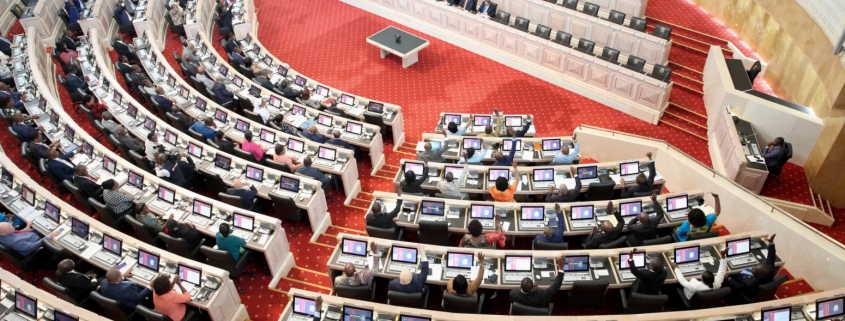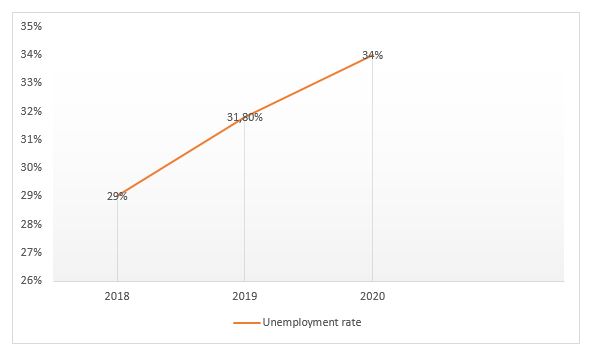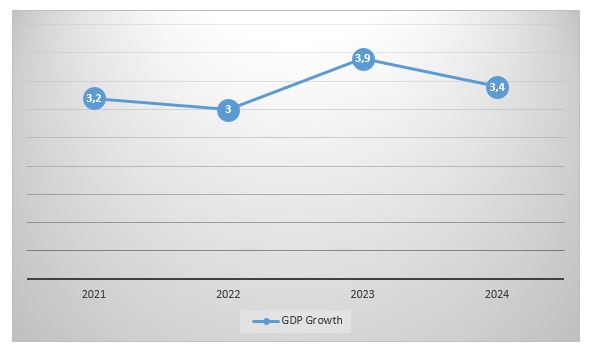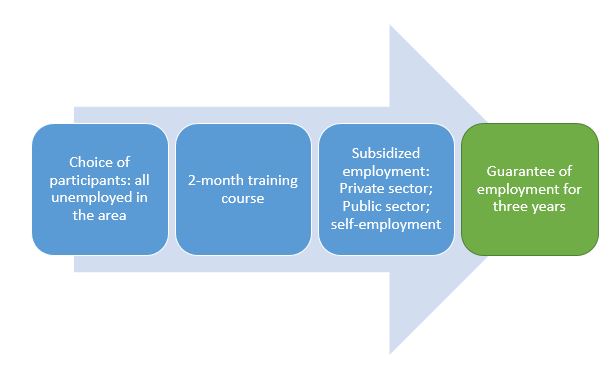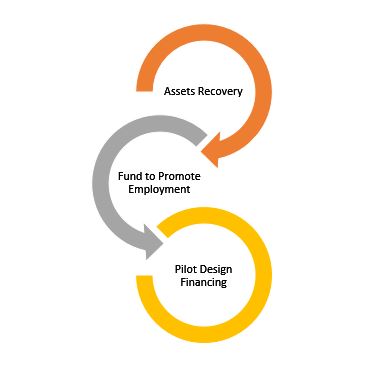The economic and financial sector in the Angolan constitutional review – In particular, the enshrining of the independence of the central bank
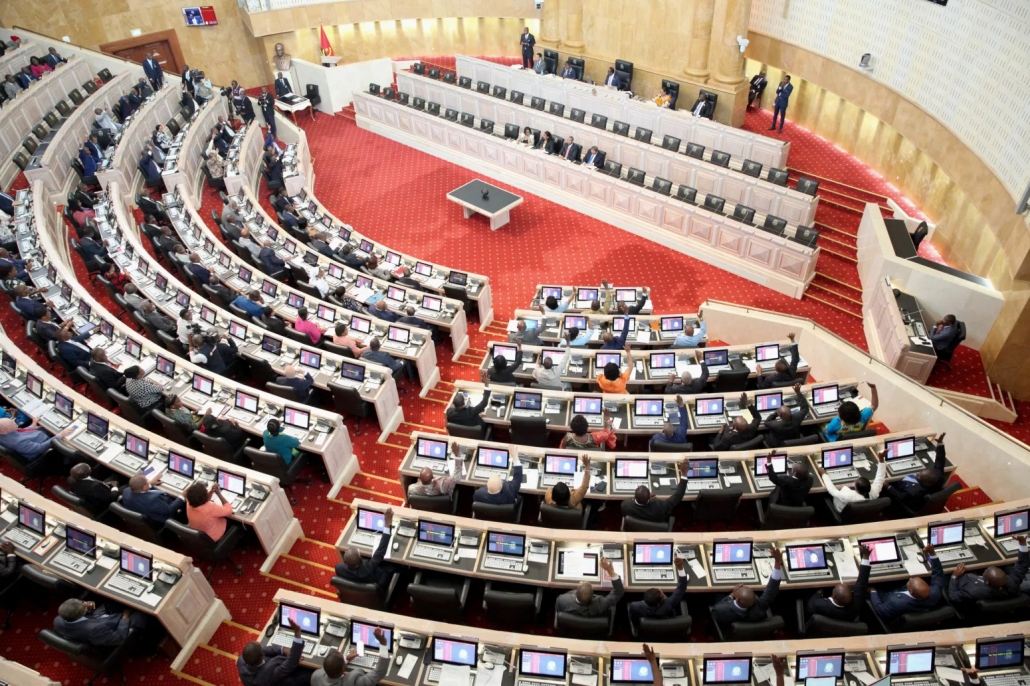
1. Introduction. Constitutional review in Angola
The present Angolan Constitution (CRA) dates from 2010 and has never been revised. Recently, President João Lourenço announced that he had taken the initiative to propose a constitutional revision.
A first comment that this action raises is that the Angolan president has a courageous policy facing the several challenges that have been placed on him: combating corruption, economic reform, quick reaction to Covid-19. At the moment, the fruits of this determined confrontation are not yet reaping, and there lies some paradox, a reformist president risks being submerged by his own reforms.
The present proposal for constitutional revision is minimalist, and so it was assumed by the government. In this sense, it risks creating expectations in the population that later will not be met. However, it represents a very important step in the discussion of the Angolan political model and the fact is that the constitutional discussion will be more important even though the effective changes that will eventually be inserted in the Constitution.
The purpose of this text is to highlight and analyze the main proposals for constitutional revision in the area of economics and finance.
2. The proposed constitutional review law in the economic and financial area
The first proposed modification is found in article 14 of the CRA, which concerns private property. The expression “promotes[1]” is introduced, with the meaning of being a function of the State in addition to guaranteeing and protecting private property and free enterprise, also the promotion of private enterprise. Positive State behavior is introduced, that of promoting free private initiative.
Later on, a new number 4 is added to Article 37 that regulates the “Right and limits of private property”. This number establishes the possibility of nationalization in the case of “ponderous reasons of national interest”. It also introduces confiscation as a sanctioning measure, which is permitted when there is a serious offense against laws that protect the economic interests of the State.
Naturally, it is in the Title about the Economic, Financial and Tax Organization that some modifications in the economic area are added. Article 92 will contain new paragraphs 2 and 3. The new wording proposed for paragraph 2, aims to “clarify the scope and meaning of the principle of community property, as a type of property enshrined in Article 14 of the Constitution, which defines the nature of the economic system by calling the regulation of the exercise of this type of property the rules of customary law that do not contradict the economic system, the social market regime and the fundamental principles of the Constitution ”. Paragraph 3 establishes the legal existence of the unstructured sector of the economy, i.e., it refers to the informal economy, pointing to its progressive institutionalization.
Then we have article 100 on the National Bank of Angola (BNA). In paragraph 1 of this article, it is determined that the BNA will be the “central bank and issuer of the Republic of Angola” and will have as primary functions: to guarantee price stability in order to ensure the preservation of the value of the national currency and ensure the stability of the financial system. Therefore, the BNA’s functions are limited to combating inflation and the stability of the financial system.
Then, in paragraph 2, “the new legal nature of BNA is enshrined, as an independent administrative entity, with an eminently regulatory nature, and the content of the principle of independence of this type of entities is signaled”. “Transmission of recommendations or issuance of directives to the governing bodies of the BNA on its activity, structure, functioning, decision-making” is hereby prohibited on the priorities to be adopted in the pursuit of constitutional and legally defined attributions, by the Executive Branch or any other public entity.
Subsequent paragraphs of the same article state that: “The Governor of the National Bank of Angola is appointed by the President of the Republic, after hearing in the National Assembly’s Specialized Labor Committee.” And they stipulate a detailed procedure for that appointment. There is a duty of parliamentary hearing, but the final decision rests with the President of the Republic.
Another change concerns the General State Budget (GSB). Article 104 proposes an amendment “in order to remove a current idea that the budget of local authorities is part of the GSB”. The GSB will provide for transfers to be made to municipalities, but not their income and expenses.
3-Analysis and comment on the proposed changes to the economic and financial Constitution
The articles to be amended are 14, 37, 92, 100 and 104.
ARTICLE 14
In relation to article 14, the State will be responsible for promoting private initiative. In addition to the rhetorical aspect of such a statement, in practical terms, this rule allows the State to assist the private sector in a consistent manner, for example, expanding free zones and tax benefits for the private business, subsidizing private companies, creating partnerships with the private sector. The State shouldn’t be merely passive and adopt a positive and active attitude towards the private sector. It is a good sign for the market.
ARTICLE 37
Article 37 is of a different nature and constitutes the only constitutional amendment directly related to the fight against corruption. In the face of a constitutional gap, the general principles on which nationalization and confiscation can take place will now be established. This last part is essential to achieve the recovery of assets that is underway in which it becomes very difficult to understand the legal framework.
It is now clear that the state can confiscate assets when there has been a serious offense against laws that protect its economic interests. In simple language, it is now clear that those who have been charged at the expense of public funds may be without these assets, with no need for a final criminal case, but only the conclusion that they have carried out a serious offense against the laws that guarantee economic interests of the State. This rule is to be applauded in the present context of combating corruption.
ARTICLE 92
If the promotion of private initiative and the speeding up of the recovery of assets obtained from corrupt activities are measures that deserve praise, more doubts raises the rule of article 92 regarding the informal economy. More than “its progressive framing in the structured economy system” (proposed wording of Article 92, paragraph 3), which essentially means the payment of taxes and fees, what the Constitution should advocate was the adoption of supportive policies to the informal sector of the economy, which is a real buffer from the lack of work and an incubator for potential successful small and medium-sized companies[2].
It has already been pointed out that in southern Africa, the informal economic sector is a crucial element of survival, given that 72% of all non-agricultural employment resides in the informal sector and the majority of new jobs show up there. The informal economy provides income and employment to all people, regardless of education or experience. In Angola, the majority of employed people are also involved in the informal economy, as otherwise they would not be able to support all of their expenses. To that extent, it is necessary to be very cautious in establishing rules about the informal economy because it helps the Angolan government[3].
ARTICLE 100
In terms of public opinion, the core of the constitutional change in economic and financial terms will be found in article 100 referring to the BNA. This article contains three main lines:
- The BNA is the “guarantee price stability in order to ensure the preservation of the value of the national currency and ensures the stability of the financial system”. Thus, the BNA’s functions related to inflation and the financial system are precisely determined;
- The BNA becomes an independent administrative authority and therefore “independent in the pursuit of its duties and in the exercise of public powers”. It is the famous independence of the central bank, which today is defended by most economic doctrine.
- The Governor of BNA is appointed by the President of the Republic, after hearing the National Assembly. It should be noted that the National Assembly has no right of veto, but of hearing.
The enshrining of central bank independence corresponds to the modern dominant trend in economic doctrine. The arguments in favor of central bank independence can easily be summed up. Governments are thought to tend making wrong decisions about monetary policy. In particular, they are influenced by short-term political considerations. Before an election, the temptation is for the government to cut interest rates, making economic cycles of expansion and retraction more likely. Thus, if a government has a history of allowing inflation, inflation expectations start to rise, making it more likely.
An independent central bank can have more credibility and inspire more confidence. Having more confidence in the central bank helps to reduce inflationary expectations. Consequently, it becomes easier to keep inflation low. Thus, there is an attempt to introduce additional credibility in monetary policy and to increase the fight against inflation. It should be noted that inflation is an evil that has endured in the Angolan economy for too long.
This measure is correct and should be considered positive.
ARTICLE 104
The last change concerns the clarification of the differentiation between the General State Budget and the Municipalities, as part of the material preparation for the installation of the municipalities.
Conclusion
Minimalist, the proposed constitutional revision in the area of economics and finance aims to reinforce the signs of the market economy and macroeconomic stability, highlighting as an essential element of this law the consecration of central bank independence and its focus on combating inflation.
*****
Attachment: New proposed wording of the norms referring to the economic and financial sector
“Article 14
(Private property and free enterprise)
The State respects, and protects the private property of natural or legal persons and promotes free economic and business initiative, exercised under the terms of the Constitution and the Law ”.
“Article 37
(Right and limits of private property)
1. […].
2. […].
3. […].
4. Own law defines the conditions under which the nationalization of private goods can occur for ponderous reasons of national interest and of confiscation for serious offense to the laws that protect the economic interests of the State ”.
“Article 92
(Economic Sectors)
1. […].
2. The State recognizes and protects the right to community property for the use and enjoyment of means of production by rural and traditional communities, under the terms of the Constitution and the law.
3. Own law establishes the principles and rules to which the unstructured sector of the economy is subject, aiming at its gradual inclusion in the structured economy system ”.
“Article 100
(National Bank of Angola)
1. The National Bank of Angola, as the central bank and issuer of the Republic of Angola, guarantees price stability in order to ensure the preservation of the value of the national currency and ensures the stability of the financial system, under the terms of the Constitution and the law.
2. As an independent administrative authority, the National Bank of Angola is independent in the performance of its duties and in the exercise of public powers to which it is concerned, in accordance with the Constitution and the law.
3. The Governor of the National Bank of Angola is appointed by the President of the Republic, after hearing the Specialized Labor Committee of the National Assembly, competent by reason of the matter, under the terms of the Constitution and the law, observing, for this purpose, the following procedure:
a) the hearing is triggered at the request of the President of the Republic;
b) the hearing of the proposed entity ends with the vote on the report in accordance with the law;
c) It is up to the President of the Republic to make the final decision in relation to the nomination of the proposed entity.
4. The Governor of the National Bank of Angola sends to the President of the Republic and to the National Assembly, a report on the evolution of monetary policy indicators, without prejudice to bank secrecy rules, the treatment of which, for the purposes of control and inspection by the National Assembly it is ensured under the terms of the Constitution and the law ”.
“Article 104
(General State Budget)
1. […].
2. The General State budget is unitary, estimates the level of revenue to be obtained and sets the authorized expenditure limits, in each fiscal year, for all services, public institutes, autonomous funds and social security and must be prepared in such a way as to that all the expenses provided for therein are financed ”.
3. The State Budget presents the report on the forecast of funds to be transferred to local authorities, under the terms of the law.
4. The law defines the rules for the preparation, presentation, adoption, execution, inspection and control of the General State Budget.
5. The execution of the State Budget complies with the principles of transparency, accountability and good governance and is supervised by the National Assembly and the Court of Auditors, under the terms and conditions defined by law ”.
[1] All citations without a specific source mentioned are from the 2021 Constitutional Review Law Proposal Rationale Report made public by the Government.
[2] Alain de Janvry e Elisabeth Sadoulet, Development Economics, 2016, p. 19
[3] Moiani Matondo, Em defesa das zungueiras e da economia informal, MakaAngola. https://www.makaangola.org/2020/04/em-defesa-das-zungueiras-e-da-economia-informal/
